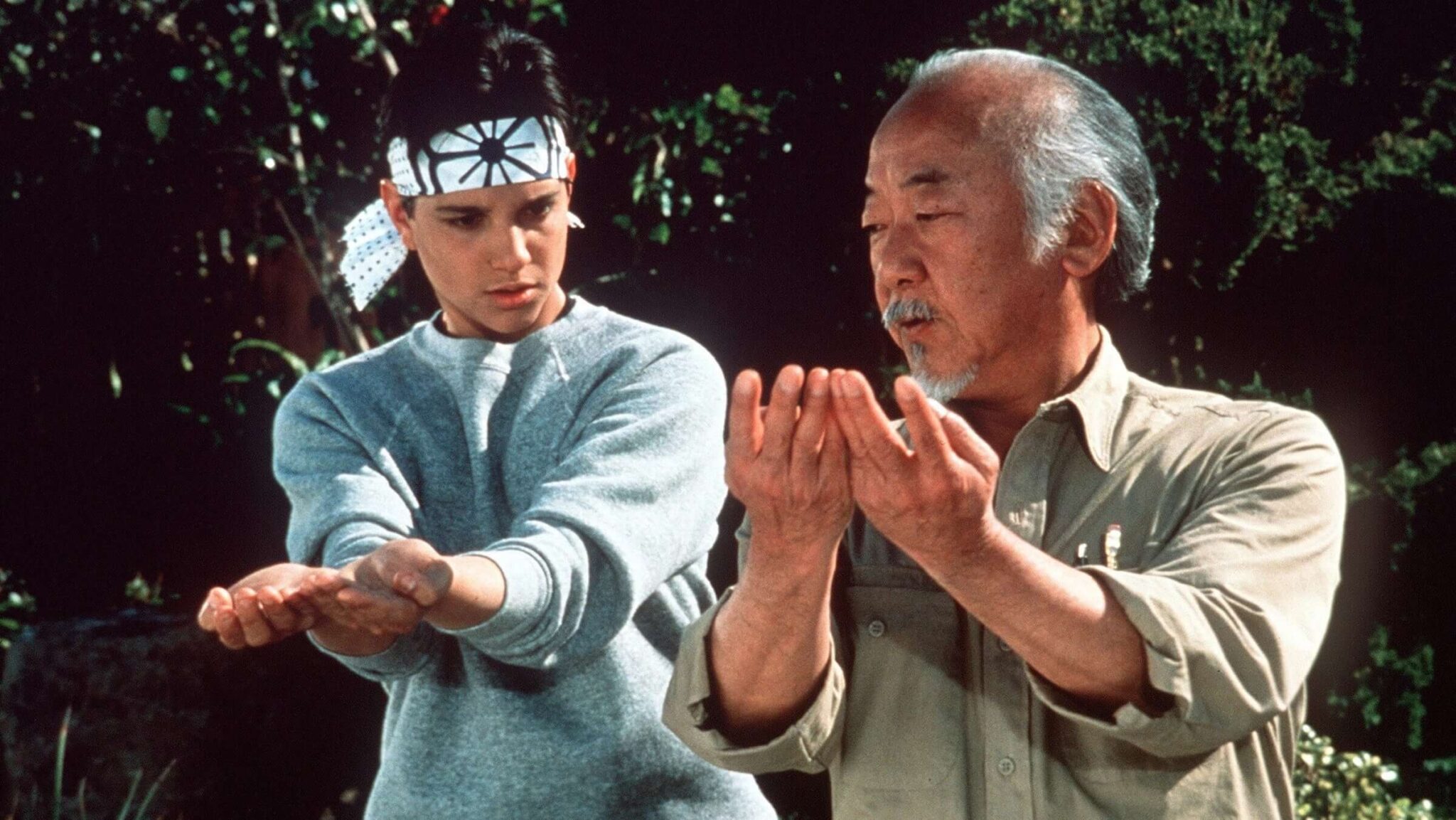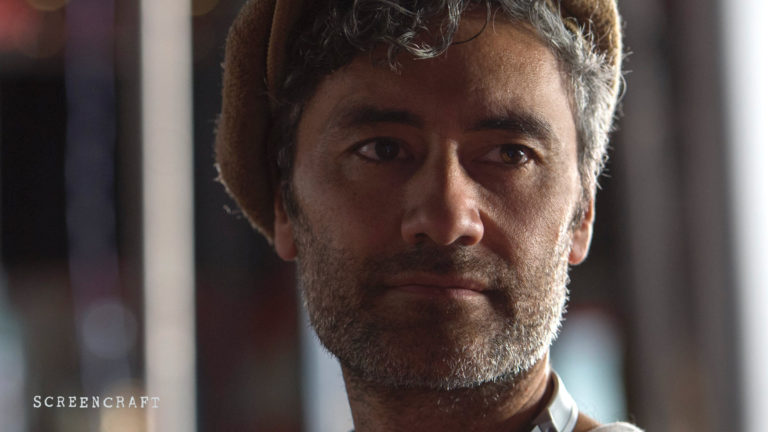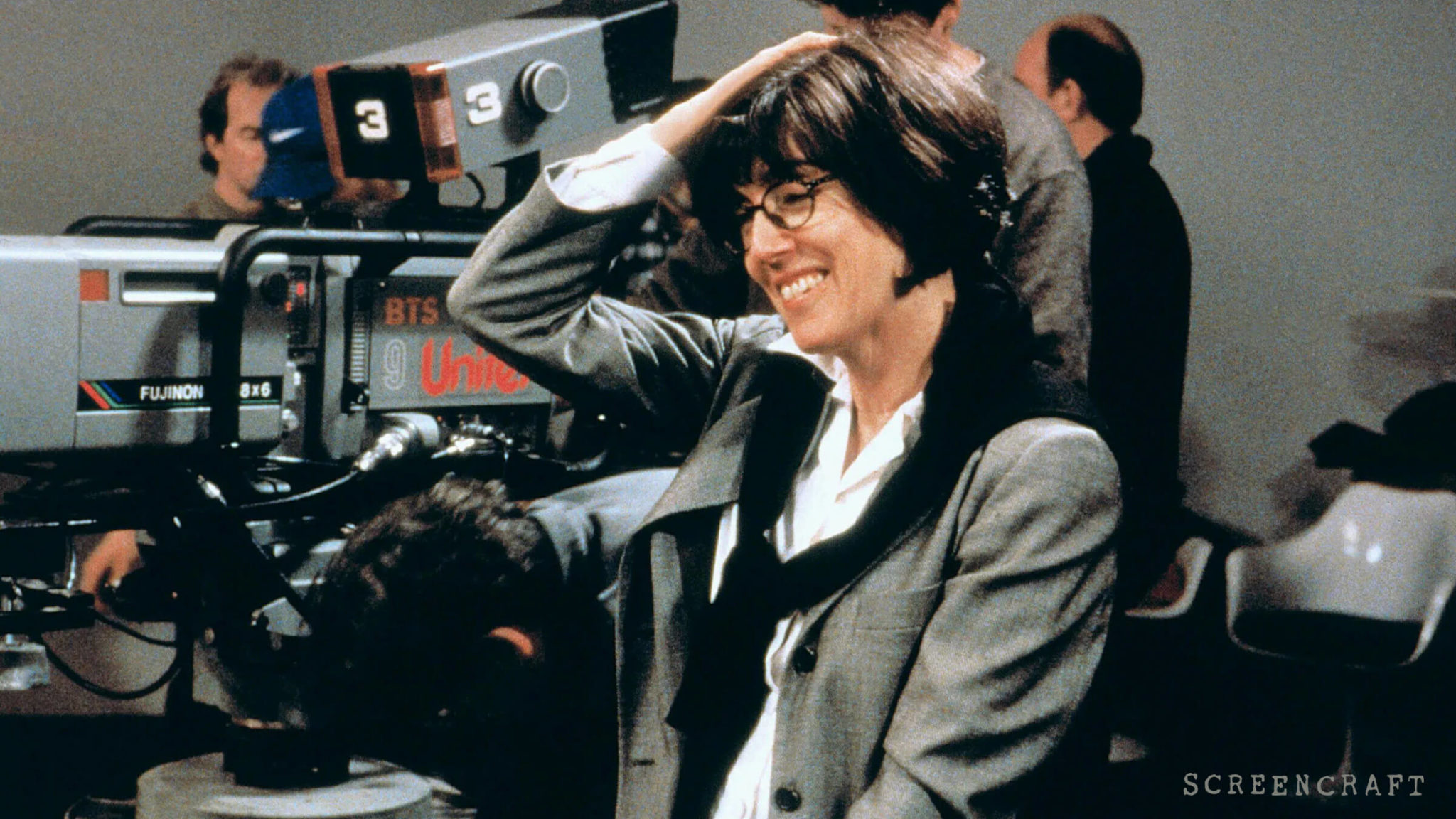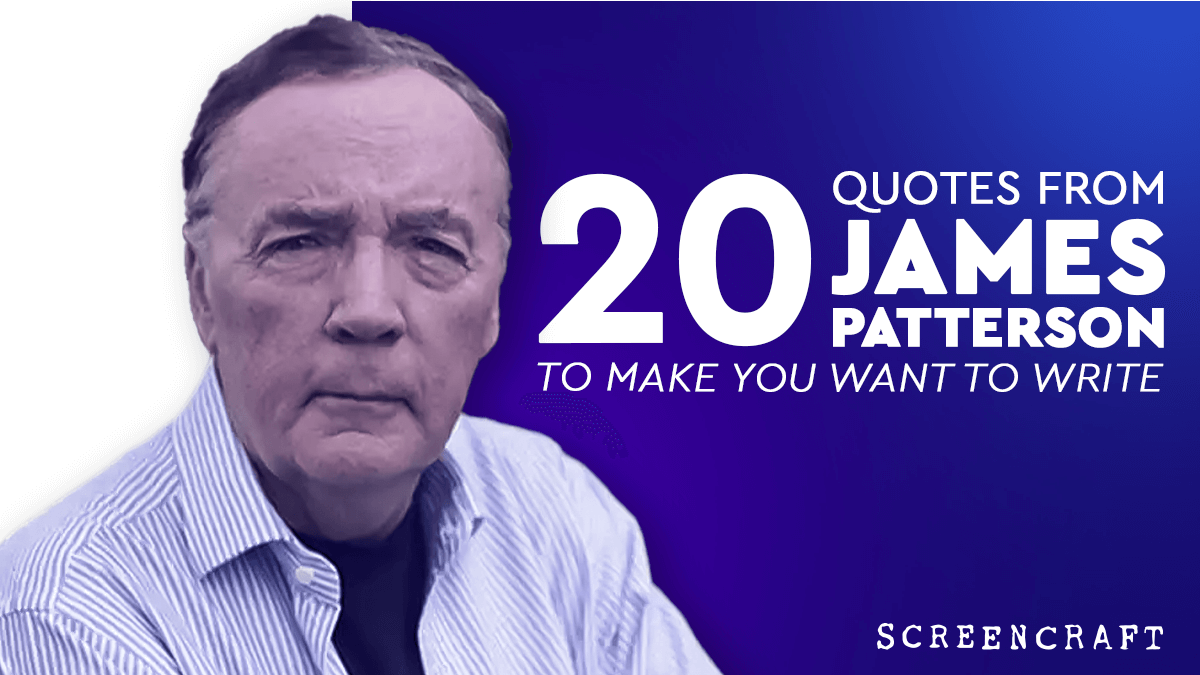10 Inspiring Chadwick Boseman Quotes for Screenwriters
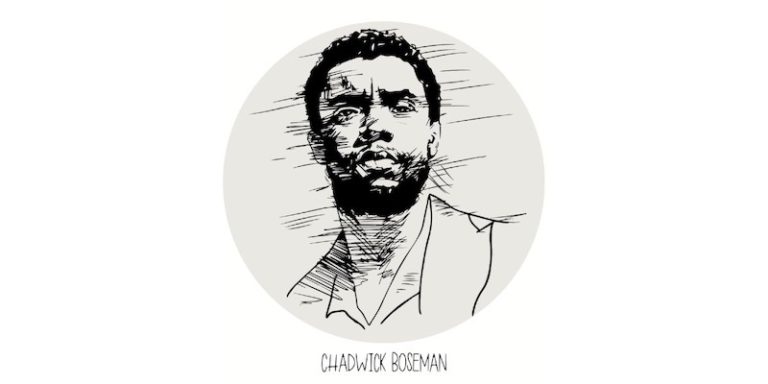
The world lost a Hollywood icon when Chadwick Boseman passed away on August 28th, 2020 at the young age of 43 after his four-year battle with cancer. But before his untimely passing, Boseman left behind an incredible legacy of amazing work in film. From his star-making role in 2013 as baseball legend, Jackie Robinson in the biopic 42, Boseman would quickly go on to portray two more historical icons. First, as the godfather of soul, James Brown in 2014's Get on Up, and then as Supreme Court Justice Thurgood Marshall in 2017's Marshall.
Boseman's stardom shot into the stratosphere in 2016 when he took on the role of Marvel superhero Black Panther in the Marvel Cinematic Universe, appearing in four MCU films as the character. The film Black Panther earned him an NAACP Image Award for Outstanding Actor in a Motion Picture, as well as a Screen Actors Guild Award for Outstanding Performance by a Cast in a Motion Picture. That film would go on to become the first superhero movie to be nominated for an Academy Award for Best Picture. In large part to Boseman's excellent performance in the titular role. Boseman also starred in 2019's 21 Bridges and had a supporting role in Spike Lee's 2020 film, Da 5 Bloods.
It's impossible to sum up the impact of Boseman's brief yet iconic career. However, we've compiled ten pieces of advice and wisdom from Chadwick Boseman that will hopefully inspire actors, filmmakers, and screenwriters for decades to come.
10 inspiring Chadwick Boseman quotes for screenwriters
Find your purpose as a writer
When you are deciding on next steps, next jobs, next careers, further education — you should rather find purpose than a job or a career. Purpose crosses disciplines. Purpose is an essential element of you. It is the reason you are on the planet at this particular time in history.
Too many screenwriters in Hollywood just focus on getting the next job or moving up in their careers. Yes, getting that paid gig is important. You need those assignments and script sales to become and remain a professional screenwriter. But you need to look beyond the next job — and figure out your purpose in your screenwriting journey. That's where you discover the screenwriter you truly want to be.
Do you aspire to write screenplays that bring about change in racial issues, introduce diversity, or bring awareness to certain types of stories that the world needs to know? Do you want to make people laugh in different ways? Or do you just want to offer the world some much-needed escapism? What's your purpose as a screenwriter? The next check will pay the bills and keep you in the game, sure. But once you know your purpose in this industry, you'll find yourself better-defined as a screenwriter. And that will appeal to potential agents, managers, development executives, and producers.
Take the initiative and write
"I started out as a writer and a director. I started acting because I wanted to know how to relate to the actors. When people ask me what I do, I don't really say that I'm an actor, because actors often wait for someone to give them roles."
Don't wait for someone to ask you to write a script. If you want to be a professional screenwriter, you have to be ready, willing, and able to develop your own concepts and put in the work to write them — and write them well. The great thing about being a screenwriter (and director), is that you have the opportunity to be more proactive in your career. All that you need to do is create.
Sure, a majority of working screenwriters rely solely on writing assignments. And like actors, you need to "audition" for those positions. But the way to prepare for those "auditions" (what we call pitches) is by having a stack of amazing scripts that can prove your worth as a screenwriter. Don't wait around and hope for someone to offer you a screenwriting job. Keep writing. Hone your skills. And give them multiple reasons why they should hire you.
Just keep writing
I'm an artist. Artists don't need permission to work. Regardless of whether I'm acting or not, I write. I write when I'm tired, in fact, because I believe your most pure thoughts surface.
Exhaustion and desperation don't always have to be negative aspects of the writing process. Your breaking point will sometimes prove to be the moment where inspiration explodes out of the walls you've unknowingly created by overthinking and over-pushing yourself to conjure scenes, characters, and moments within your screenplay projects. That is when the purest moments of your writing are unleashed.
Read ScreenCraft's 3 Ways Screenwriters Can Avoid the Paralysis of Analysis!
Rejection is part of screenwriting
Sometimes you need to get knocked down to understand what you fight [for].
You can’t avoid rejection as a screenwriter. Screenwriting is simply going to break your heart again and again. Your screenplay won't make the first or last cut of that screenwriting competition, contest, or fellowship. You'll struggle to get representation. That producer or development executive you got your spec script to won't like it. And when that rejection happens, no words of inspiration are going to overshadow it.
Just know that you’re not the only one going through it. Rejection is simply something you have to get through and (hopefully) learn from. Try to remember what you're fighting for as a screenwriter and you'll find a way to tell your stories.
Music inspires good writing
I love all types of music. Jazz, classical, blues, rock, hip-hop. I often write scripts to instrumentals like a hip-hop artist. Music inspires me to write.
Music is a huge part of the cinematic experience. So it's easy to understand why adding music to your writing process can help create cinematic moments within your screenplays. It’s all about embracing every element of cinema to help write your screenplay. The magic of screenwriting is transferring what’s in your head to paper or screen. When you conjure scenes, sequences, and moments in full cinematic context — complete with both visual and audio flair — that information will show in the work. Your writing might even develop a certain type of pacing, tone, and atmosphere.
And the music you choose as part of your inspiration will often lead you to the right beats, crescendos, and emotions that will make your script not just better — but a cinematic symphony.
How to write better heroes
The only difference between a hero and the villain is that the villain chooses to use their power in a way that is selfish and hurts other people.
This is one of the most accurate and elegant descriptions of how to write a compelling villain. Remember that it's not just power, but how a character uses it, that defines them.
Read ScreenCraft's 15 Types of Villains Screenwriters Need to Know!
Don't judge the character
One of the first things I was taught as an actor was, 'Don't judge the character.'
This applies to screenwriting as well. Never judge the characters that you conjure or the real-life characters you portray within your pages. And don't use the screenplay to judge them. It's a common mistake that isn't talked about as much as it should be within screenwriting and filmmaking circles.
Present the characters as they are — flaws and all. Don't push the plot to judge them, punish them, or ridicule them. Show them to the world. Unpeel those layers. And then let each audience member react in their own way.
It's ok to say no
I said yes too much. I said yes to certain projects that weren't for me. It was somebody else's vision and somebody else's dream and somebody else's artistic endeavor, but it didn't necessarily fit in my grand scheme.
There is an argument to be made that you, as a screenwriter, should take every screenwriting job that you can. To a point, that's true. However, at some point in your career, you're going to have to figure out what stories you want to tell and how you want to tell them. Making decisions based solely on money can be soul-breaking in the end.
So when you're writing that lackluster by-the-numbers B action flick or forgetful television movie for a solid paycheck, always be developing those concepts that represent where you want to go in your career. It's a balancing act. You have to pay the bills and feed yourself, but you also have to feed your soul. Never lose sight of that.
Write for yourself, not the approval of others
The number one rule of acting is, 'Do not seek approval from the audience.' People don’t realize that. You can’t do stuff to get applause. You have to live in the truth.
The same can be said for screenwriters. If you're writing a script to please a demographic, woo a certain type of industry insider, or check the boxes of a current hot trend, you're not living the truth within your writing. You're not trying to tell a compelling story. Instead, you're trying to please someone whose judgment and reaction you have no control over. Just focus on writing a compelling cinematic tale. See it in your mind's eye as if it's playing within a theater only you can view. And just tell the story. The rest is up to the fates.
Write your characters from within
When you play characters, you shouldn’t just be putting on their characteristics — you should be finding it inside yourself.
Screenwriters and actors handle characters in both similar and different ways. Actors are tasked with the physical representation of the character — but to do that effectively, they have to tap into the emotions of that character as well. Screenwriters are tasked with the creation of the character to pass that work onto the actor for their performance of it — but to do that effectively, they also have to tap into the emotions of that character just the same.
And for actors and screenwriters to accomplish their jobs of portraying characters effectively — either on the page or the screen — they have to look inward to find elements of those characters within themselves. That's the secret to great character development.
Inspirational words from Chadwick Boseman
Hopefully, some of these wise words from a true artist resonated with you. Use them in your screenwriting journey. Thank you and rest in peace, Chadwick. You'll never be forgotten.

Ken Miyamoto has worked in the film industry for nearly two decades, most notably as a studio liaison for Sony Studios and then as a script reader and story analyst for Sony Pictures.
He has many studio meetings under his belt as a produced screenwriter, meeting with the likes of Sony, Dreamworks, Universal, Disney, Warner Brothers, as well as many production and management companies. He has had a previous development deal with Lionsgate, as well as multiple writing assignments, including the produced miniseries Blackout, starring Anne Heche, Sean Patrick Flanery, Billy Zane, James Brolin, Haylie Duff, Brian Bloom, Eric La Salle, and Bruce Boxleitner, and the feature thriller Hunter’s Creed starring Duane “Dog the Bounty Hunter” Chapman, Wesley Truman Daniel, Mickey O’Sullivan, John Victor Allen, and James Errico. Follow Ken on Twitter @KenMovies
For all the latest ScreenCraft news and updates, follow us on Twitter, Facebook, and Instagram.
Get Our Screenwriting Newsletter!
Get weekly writing inspiration delivered to your inbox - including industry news, popular articles, and more!













